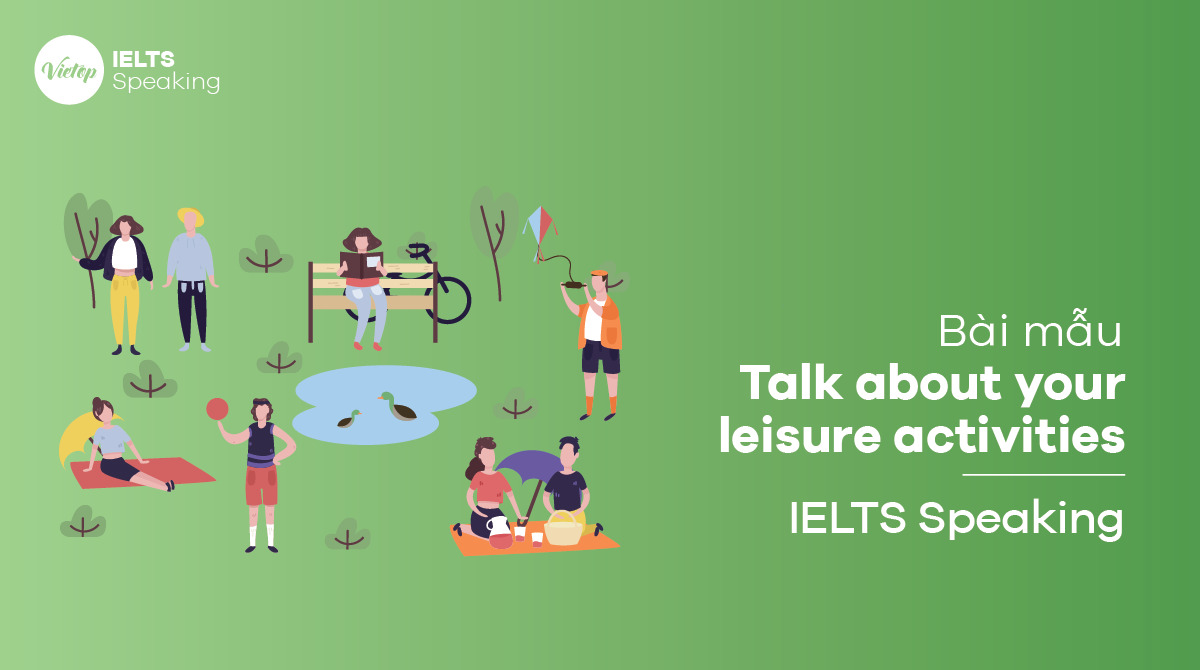Vietop gửi bạn giải đề Speaking 07/04/2022 cùng tìm hiểu để chuẩn bị cho phần thi IELTS Speaking thật tốt nhé!
![[ACE THE TEST] Giải đề Speaking 07/04/2022 1 Giải đề Speaking 07/04/2022](https://www.ieltsvietop.vn/wp-content/uploads/2022/09/giai-de-speaking-07-04-2022.png)
IELTS Speaking Part 1: Science
IELTS Speaking Part 1: Sample
1. Do you like science?
Well yes, of course. Considering the technological advancement and medical miracles it has helped us to create, things that provide me much comfort in my life, it’s hard to dislike science.
- Technological advancement: bước tiến trong công nghệ
- Miracle (n) phép màu, điều thần kì
→ Trả lời một cách trực tiếp và nêu lí do liên quan đến bản thân để làm rõ quan điểm
2. When did you start to learn about science?
At a very young age, I started reading children’s books about science. I still remember the first book my mom bought me. It was a tiny book about fossils. I loved it so much, so much so that I almost became a palaeontologist.
- Fossil (n): hóa thạch
- So much so that + S + V : nhiều đến mức mà
- Palaeontologist (n): nhà cổ sinh học
→ Thay vì trong trường học, cũng có thể trả lời rằng lần đầu tìm hiểu về khoa học qua sách. Lưu ý từ learn có nghĩa là tiếp thu kiến thức chứ không chỉ là học trên trường lớp.
Xem ngay: Khóa học IELTS Speaking – Online và Offline cùng giáo viên IELTS 8.0+ Speaking
3. Which science subject is interesting to you?
As I mentioned, I’ve loved fossils for a long time. So, palaeontology is my favourite subject. Recently, technology and robotics have also started to grow on me. It’s amazing how technology has progressed in the last few years.
- Palaeontology (n): môn cổ sinh học
- Robotics (n): (ngành) robot học
- To grow on me: tôi càng ngày càng thích (dù ban đầu không thích)
→ Liên hệ đến câu trả lời ở trên và khai triển thêm bằng cảm nghĩ ở hiện tại.
4. What kinds of interesting things have you done with science?
In school, I was taught about cool chemical reactions and how to do them. I love it when you mix two chemical compounds and they start changing colors. I’ve always been fascinated by it.
- Chemical compound: chất hóa học
- To be fascinated (v,passive): đi với “by”. Bị hấp dẫn bởi
Audio
Xem ngay:
Tổng hợp 30+ topic thi IELTS SPEAKING part 1, 2, 3 thông dụng nhất
Cách trả lời câu hỏi IELTS Speaking Part 1 “What do you do in your free time?”
IELTS Speaking Part 2: Describe a rule (in school or work) that you don’t like
IELTS Speaking Part 2: You should say:
- What it is
- Why you don’t like it
- How others feel about the rule
Sample
And explain whether you’ve followed the rule
I’m going to talk about a rule, or more accurately, a penalty that was imposed on students for being tardy in my former high school. I never liked this rule when I was attending there and I still don’t like it now. My school had and still has the rule that if a student arrives just one minute late, they may not attend the morning sessions. Instead, we would receive a dressing down from the school proctor.
You may know a day for a Vietnamese highs chooler starts really early. I used to have classes at 6:45 in the morning, and obviously, sometimes being late was unavoidable. Crowded traffic, broken alarm clock, flat tires… you name it. However, my school seemed to be apathetic when it came to these excuses. Unsurprisingly, many students, including myself, were forced to miss some classes due to this strict rule and had to sit in extra classes to cover the knowledge gap.
Many of us had to sacrifice the much needed rest hours to come to these classes. While I understand the need for enforcing rules, in this particular case I think the school wasn’t understanding of the students’ circumstances. What’s more, I’ve always thought that making students miss more classes as a punishment for tardiness is counter-productive and demotivating.
If I were in charge, I would let the students in these classes and would ask them the reason why they were late later, before taking any further actions. I hope this situation will change soon
Vocab
- Penalty (n): hình phạt
- Tardy (adj): trễ giờ. Tardiness (n): sự trễ giờ
- Dressing down: sự la rầy
- Flat tires: lốp xe bị xịt
- Apathetic (adj): vô cảm
- Sacrifice (v): hi sinh
- Circumstance (n): hoàn cảnh
→ Bắt đầu bằng việc giới thiệu một nội quy cụ thể, cho hoàn cảnh liên quan đến bản thân (ở đâu, khi nào), nhấn mạnh là mình không thích luật lệ này. Sau đó miêu tả quy định này (làm cách nào để thực hiện, ai phải thực hiện, nếu không thực hiện sẽ bị gì), có thể kết hợp kể một câu chuyện. Tiếp theo, giải thích vì sao mình không thích luật lệ này. Cuối cùng, nếu cảm nghĩ cuối cùng cũng như mong muốn trong tương lai.
Audio
Xem thêm:
IELTS Speaking Part 3: Rules and Laws
![[ACE THE TEST] Giải đề Speaking 07/04/2022 2 Rules and Laws](https://www.ieltsvietop.vn/wp-content/uploads/2023/06/Rules-and-Laws-.png)
IELTS Speaking part 3: Sample
1. Why do schools make rules?
Any school is essentially an organisation, and for any organisation to function effectively, rules and a hierarchy have to be established. They are there to make sure each member fulfils their assigned tasks and follows the orders from their superiors. Beside these rules, there are also rules of dress code which are designed to strengthen the sense of community.
- Function (v): vận hành
- Hierarchy (n) : hệ thống cấp bậc
- To be established (v, passive): được tạo ra
- Fulfil (v): thực hiện
→ Giải thích theo dạng nêu lý do. Ở đây lý do chủ yếu là để cho một tổ chức được vận hành suông sẻ. Lý do phụ là để mọi người trong cùng một cộng đồng gắn bó hơn.
2. What’s the importance of obeying the law?
Following the law is what makes a society fair and just. It helps to reinforce the notion that everyone is equal and regardless of your social status or financial background, everyone must follow the same set of rules. This is also true in the cases of people breaking the laws. It won’t matter who the violator is, they will be punished in accordance with the rules.
- Just (adj): công bằng
- Reinforce (v) : khẳng định, nhấn mạnh. Reinforce the notion
- Regardless of : không màng tới
- Violator (n): người vi phạm
- In accordance with : dựa trên
→ Trả lời trực tiếp và giải thích rõ ràng vì sao cũng như trường hợp ngược lại.
Xem ngay: Khóa học IELTS 1 kèm 1 – Chỉ 1 thầy và 1 trò chắc chắn đạt điểm đầu ra
3. What can parents and teachers do to help children follow rules?
One thing that they could do is to give the children some rewards whenever they learn and follow new rules. A trip to the zoo, a piece of candy or some extra play time can amplify the message that following rules is a good thing to do. Conversely, privileges and rewards should be withheld when children refuse to follow previously-learned rules.
- Reward (n) : công bằng
- Amplify (v): phóng đại
- Privilege (n) : quyền lợi đặc biệt (đối với việc nuôi con là xem tivi, đi chơi, …)
- To be withheld (v, passive) : bị giữ lại, không cho
→ Trả lời bằng cách đưa ra đề xuất, hệ quả của việc đó. Mở rộng bằng cách đưa ra hoàn cảnh ngược lại
4. Is it a good thing to break rules sometimes?
While I don’t condone this behaviour, history has shown that sometimes violating some rules is absolutely necessary. When Nazi Germany military occupied Poland, sheltering Jewish people were punishable by death. Yet many women and men risked their lives, and in fact, many did get executed because of their bravery. Today, we look back and honour them as heroes who did what was right and not just blindly followed the laws.
- Condone (v): cổ xúy
- Be punishable by death: có thể bị xử tử
- Get executed (v, passive) : bị xử tử
- Bravery (n): lòng dũng cảm
→ Dùng vế “while I don’t condone…” để thể hiện việc bình thường bản thân người trả lời sẽ không đồng tình với việc này. Tuy nhiên đôi khi phá luật là việc cần thiết, ví dụ như nhưng luật lệ trái với đạo đức, nhân tính (nêu ví dụ mạnh).
Audio
Xem thêm:
Bài mẫu topic Food & Cooking – IELTS Speaking part 1, 2, 3
Trên đây là giải đề Speaking ngày 07/04/2022 mà Vietop muốn gửi đến bạn. Hy vọng bài mẫu trên sẽ giúp ích được bạn trong quá trình ôn luyện IELTS cũng như là cải thiện band điểm.
Xem thêm các Giải đề IELTS Speaking khác:










